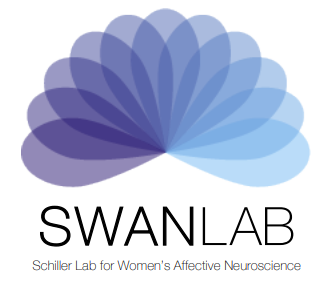Perinatal and Pregnancy Studies
BUMP Study

The goal of the BUMP Study is to learn more about how pregnancy hormones relate to changes in mood and brain activity.
We are looking for pregnant women who either:
- Had depression or persistent irritable mood during or after a prior pregnancy, and who are not depressed or irritable now, OR
- Have never had depression.
You may be eligible to join if you also:
- Are less than 15 gestational weeks;
- Are 18 to 45 years of age;
- Are not currently taking medications for mood symptoms; and
- Have given birth to at least one child.
In this study, we assess hormones, mood, and brain activity during pregnancy. The study involves 1 enrollment visit, 2 study visits to look at your brain waves, mood surveys, and urine samples. Online mood surveys will take approximately 5 to 15 minutes to complete, and most study visits will last approximately 1.5 hours. In person study visits will take place at Carolina Crossing (Carolina Crossing, Building B, Suite 1, 2218 Nelson Highway, Chapel Hill, NC 27517). You can receive up to $280 for participating in this study.
To learn more and find out whether you qualify, please call Dr. Swales and our study team at 984-464-1884 or contact us by email at bumpstudy@unc.edu. Thank you for your interest in our research!
This research has been approved by the UNC Chapel Hill IRB on September 9, 2022 (PI: Swales, #22-1059). For questions on your rights as a research participant, please contact the UNC IRB at (919) 966-3113.
The PEMA Study

Evaluating stakeholder perspectives on smartphone-based psychological surveys during the perinatal period
What’s the study about? Smartphone-based surveys may help us identify individuals who need support and increase access to mental health care during the perinatal period. With that in mind, this research study is looking at what people think about completing smartphone-based mental health surveys during pregnancy and postpartum. Our findings may help researchers and providers design mobile apps to support perinatal well-being.
What’s involved in the study? Participants will be asked to watch a brief video on smartphone-based mental health assessment and then complete an online survey, which will ask about your thoughts and feelings about these types of surveys. The survey will also ask about your mental and reproductive health history. We expect the survey will take about 20-30 minutes to complete. If you’d like, you can also meet with a research team member for feedback on your survey responses.
Will I receive anything if I participate? Participants will be entered into a drawing to receive 1 of 10 $25 gift cards.
How can I participate? The first step is to complete a brief online survey to see if you are able to join the study. If you would like to learn more and complete the survey, use this secure link: go.unc.edu/pma.
With questions, please contact: what2expect@unc.edu
This research has been approved by the UNC Chapel Hill IRB (#22-2112). For questions on your rights as a research participant, please contact the UNC IRB at (919) 966-3113.
The W2E Study

A person-centered approach to understanding perinatal mental health
What’s the study about? As many as 1 in 3 parents experience mental health struggles during pregnancy and postpartum. The goal of this research study is to better understand how people differ in their experience of perinatal mental health. We are also interested in your opinions on completing daily smartphone-based surveys about mental health and wellbeing.
What’s involved in the study? Participants will be asked to complete 5 virtual study visits. The first visit will last ~1-2 hours, and the rest will be about 30 minutes long. During the first visit, you will be asked to complete brief interview about your mental health history with a study team member. At each visit, you will be asked to complete an online survey with questions about your health and wellbeing. In addition, you will be sent daily texts with brief surveys about your daily mental health and sleep from your 28th weeks of pregnancy until about 12 weeks postpartum. These surveys will take about 10-15m a day.
Will I receive anything if I participate? Participants will receive up to $150. This includes up to $90 for completing the smartphone-based surveys and up to $60 for the virtual study visits.
How can I participate? You may be able to participate if you are currently pregnant. The first step is to complete a brief online survey to see if you are able to join the study. If you would like to learn more and complete the survey, use this secure link: go.unc.edu/w2e.
With questions, please contact: what2expect@unc.edu
This research has been approved by the UNC Chapel Hill IRB (#22-2513). For questions on your rights as a research participant, please contact the UNC IRB at (919) 966-3113.
Stress Regulation During the Postpartum Period
This study asks about how you juggle it all after childbirth and interact with your child. The study can be completed from your own home and offers between $25-$35 for your time. If you participate in this study, we ask that you complete an online survey, agree to a 10-minute free-play Zoom recording with you infant, and possibly complete a brief interview. Again, all study tasks can be completed from the comfort of your own home and will take about an hour of your time.
Please contact the Principal Investigator, Lis Bernhardt, RN if you are interested in this study.
Phone: 203-521-9987
Email: lis0411@live.unc.edu
This research has been approved by the UNC Chapel Hill IRB (#21-1485). For questions on your rights as a research participant, please contact the UNC IRB at (919) 966-3113.
